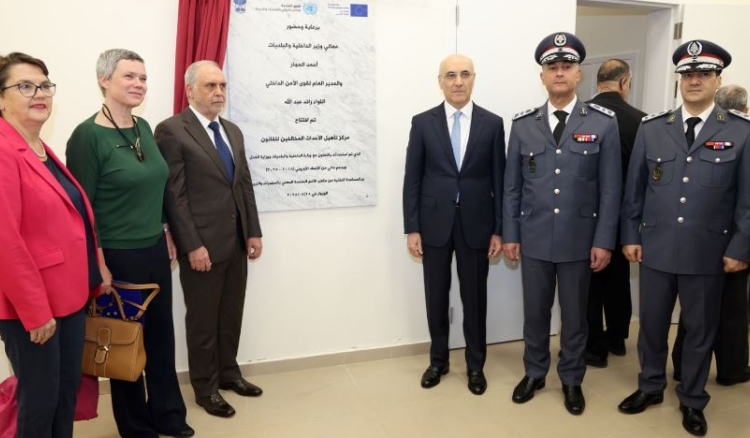
In a significant step toward juvenile justice reform, Lebanese officials and international partners inaugurated a new rehabilitation center for juvenile offenders in Warwar on Wednesday. The facility, funded by the European Union (EU), promises to provide a humane, rehabilitative alternative to traditional detention for youth in conflict with the law.
The opening ceremony was attended by Interior Minister Ahmad al-Hajjar, EU Ambassador to Lebanon Sandra De Waal, UNODC Regional Representative for the Middle East and North Africa Christine Albertin, and Director General of the Internal Security Forces (ISF) Major General Raed Abdallah.
Ambassador De Waal described the center as a model for progressive youth justice, stating that it “is not only in line with international standards, but also provides a supportive, child and youth-friendly environment.”
She stressed that the center serves not only the juveniles but society at large: “Creating a nurturing environment that promotes rehabilitation and reintegration into society effectively reduces the chances of relapse and shows them that there is still hope, and that life always offers a new chance.”
For his part, Interior Minister Hajjar hailed the project as a turning point for Lebanon’s justice system. “This is not just the opening of a building,” he said, emphasizing that this center “represents a space of hope and new opportunities for juveniles who have lost their way.”
“It is where they can rediscover their potential and integrate into society as productive and empowered individuals,” he continued.
Hajjar underlined the importance of shifting from punishment to rehabilitation. He said, “We deeply understood the psychological and social conditions that may lead some juveniles to commit offenses. Therefore, it was imperative to move toward a reformative rather than punitive approach.”
Furthermore, Christine Albertin of the UNODC echoed these sentiments, underscoring the value of coordinated efforts to support juvenile reintegration. “The prison door has been closed forever for juveniles in conflict with the law,” she said. “This new facility meets UN standards and international best practices, offering a safe environment, preserving dignity, and providing programs that build health, self-esteem, and responsibility,” Albertin added.
Finally, Major General Abdallah praised the center’s practical impact, explaining that it offers “an independent setting where juveniles are treated using modern, high-quality correctional methods.”
It is worth noting that the EU affirmed that this center marks a departure from traditional institutional settings.
In a statement, the union indicated that the center “transforms the traditional institutional character into a welcoming environment in line with international standards and practices, featuring thoughtful architecture, functional design, and inspiring murals painted by young people.”
“The facility will accommodate around 100 juvenile offenders previously housed in Roumieh Prison. At the center, they will receive social and psychological support services aimed at facilitating their reintegration into society,” the statement added, noting that improving juvenile detention conditions “is one of the main pillars of the EU’s ongoing support.”



Comments